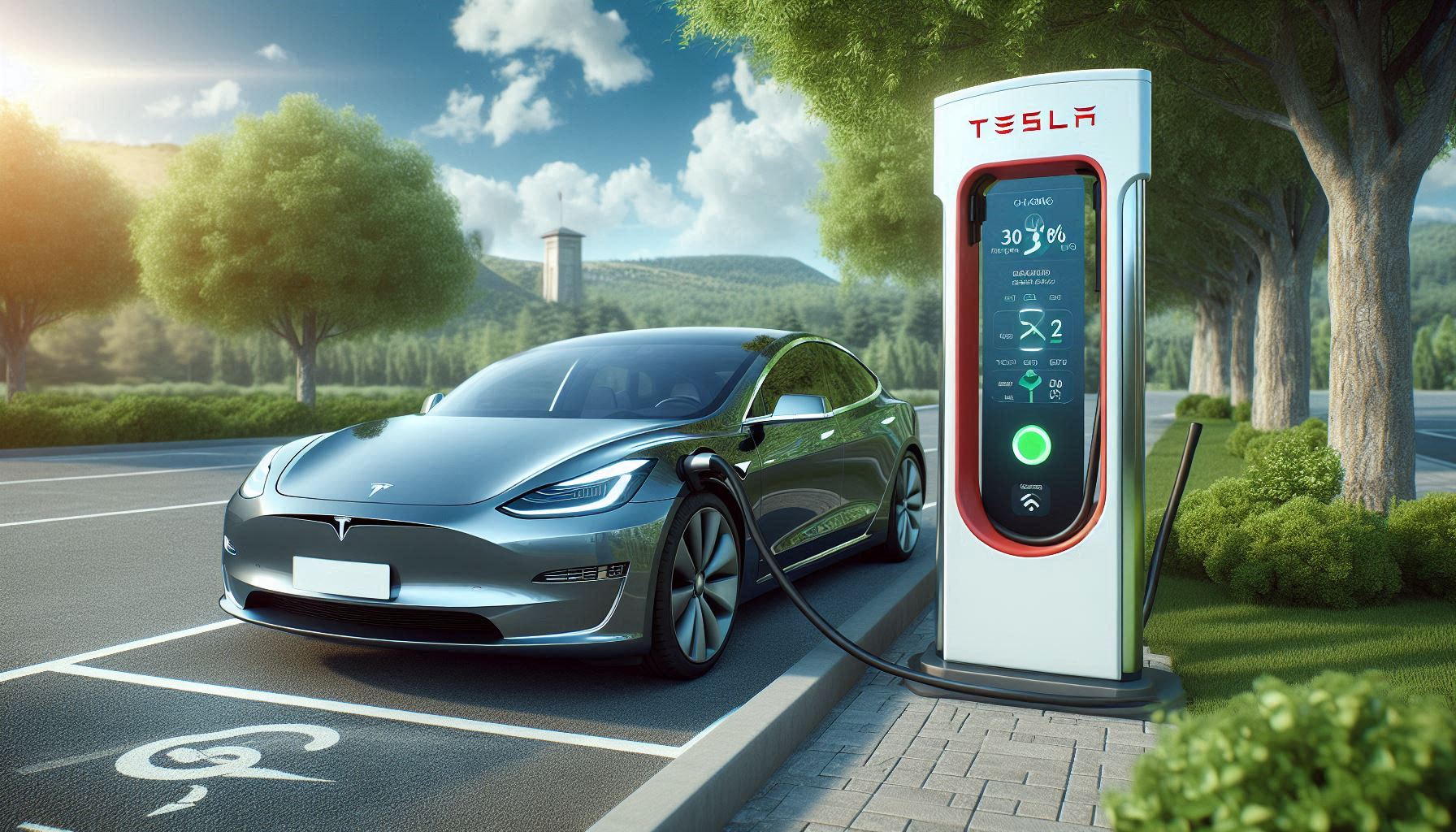When considering a Tesla or any electric vehicle (EV), one of the most common questions is: How long does it take to charge? The answer depends on several factors, including the type of Tesla model, the charging equipment used, and the state of the battery. This article breaks down the average charging times across different scenarios, helping you plan your charging needs effectively.
1. Factors Affecting Charging Time
Charging time varies based on:
- Tesla Model: Different models (e.g., Model S, Model 3, Model X, and Model Y) have different battery capacities.
- Battery Level: The time needed depends on whether the battery is near empty or just being topped off.
- Type of Charger: Charging can be done at home using a standard outlet or with faster charging stations.
2. Types of Tesla Charging Options
Tesla offers multiple charging options, each with its own charging speed.
2.1 Level 1 Charging: Standard 120-Volt Outlet
- Description: Uses a regular household outlet (120 volts).
- Charging Speed: About 3-5 miles of range per hour.
- Average Charging Time: Charging from near-empty to full can take over 24 hours, making this option suitable only for emergencies or overnight top-ups.
2.2 Level 2 Charging: 240-Volt Home Charger
- Description: A dedicated 240-volt outlet, like those used for electric dryers, or a Tesla Wall Connector.
- Charging Speed: Provides 20-44 miles of range per hour, depending on the amperage.
- Average Charging Time: Typically, a full charge can be achieved in 8-12 hours, perfect for overnight charging at home.
2.3 Level 3 Charging: Tesla Superchargers
- Description: High-speed charging stations available at dedicated Tesla locations.
- Charging Speed: Can provide up to 200 miles of range in 15 minutes, depending on the Supercharger version (V2 or V3).
- Average Charging Time: Charging from 10% to 80% typically takes about 20-40 minutes. Superchargers are ideal for long trips where quick charging is essential.
3. Charging Time by Tesla Model
3.1 Tesla Model 3
- Standard Range: Full charge at home can take around 8-12 hours using a Level 2 charger. With a Supercharger, reaching 80% can take about 20-30 minutes.
- Long Range: Similar times with a Level 2 charger, but slightly longer due to the larger battery capacity.
3.2 Tesla Model S
- Charging at Home: Can take 10-12 hours for a full charge on a Level 2 charger.
- Supercharging: Typically reaches 80% in 25-40 minutes, depending on battery size and the version of the Supercharger used.
3.3 Tesla Model X
- Home Charging: A full charge can take 12+ hours due to its larger battery.
- Supercharger: Fast charging to 80% generally takes 30-45 minutes.
3.4 Tesla Model Y
- Home Charging: Completes a full charge in 8-12 hours using a 240-volt outlet.
- Supercharger: Reaches 80% in 20-30 minutes.
4. What Affects Supercharging Times?
While Superchargers are known for their rapid charging capabilities, certain factors can affect charging speed:
- State of Charge (SOC): Charging slows down as the battery approaches full capacity to prevent damage.
- Battery Temperature: Cold weather can slow down charging speeds. Tesla vehicles have a preconditioning feature to warm up the battery when approaching a Supercharger.
- Supercharger Version: V3 Superchargers offer faster charging compared to older V2 models.
5. Optimizing Your Tesla Charging Time
5.1 Charging at Home
- Install a Wall Connector: This dedicated 240-volt charger is faster than a standard outlet and can fully charge your Tesla overnight.
- Time-of-Use Rates: Charging during off-peak hours can save money and ensure the car is ready for use by morning.
5.2 On the Road
- Plan Your Route: Use Tesla’s onboard trip planner to locate Superchargers along your journey and calculate estimated charging times.
- Charge to 80%: Stopping at 80% is more time-efficient during long trips because charging slows significantly beyond this point.
6. Comparing Charging Costs
Charging time isn’t the only factor to consider; the cost varies by method:
- Home Charging: Typically the most affordable, costing an average of $10-$15 for a full charge, depending on electricity rates.
- Supercharging: Costs more than home charging but is still cheaper than refueling a gas car. Prices vary by location and time of use.
7. Future Advancements in Charging Technology
Tesla and other companies are investing in faster charging solutions, including:
- V4 Superchargers: Promising even faster speeds and better energy efficiency.
- Solid-State Batteries: Potentially reducing charging times significantly and increasing range.
Conclusion
The time it takes to charge a Tesla depends on the model and charging method used. While Level 1 charging is slow and best reserved for emergencies, Level 2 home chargers provide a reliable overnight solution. Tesla’s Superchargers are the fastest way to recharge on the road, ensuring minimal downtime during long trips. By understanding your charging options, you can plan effectively and make the most of your Tesla’s capabilities.
Whether you’re charging at home or using a Supercharger, knowing what to expect helps you maximize efficiency and convenience. As Tesla continues to innovate, we can anticipate even faster and more efficient charging options in the near future.



